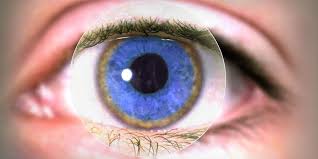
Wilson disease definition
Wilson is a rare neurodegenerative disorder of copper metabolism that is characterized by excessive accumulation of copper in the body, especially in the liver, brain, and eyes. Instead of the body eliminating the excess copper it absorbs from food (The body absorbs redundant copper from food rather eliminating it), for people with Wilson disease, the copper accumulates, causing tissue damage. It may (be) present at any age.
Wilson disease symptoms
Symptoms appear when the copper accumulates in the brain, liver or other organ.
Liver-related symptoms
-
A yellowing of the skin and the whites of the eye
-
Fluid buildup in the legs or abdomen
-
Anemia
-
Fatigue
Neurological symptoms
-
Rigidity
-
Drooling
-
Changes in speech
-
Tremor
-
Walking abnormalities
-
Weakness
Other symptoms
-
kidney stones
-
arthritis
-
menstrual irregularities
-
low blood pressure
-
Kayser-Fleischer rings (abnormal golden-brown discolorations in the eyes that are caused by deposits of excess copper)
Wilson disease diagnosis
Wilson disease can be difficult to diagnose and treat. An early diagnosis can lead to improvement in patients while delayed diagnosis and treatments may prove lethal. Nervous system or psychiatric problems are often the initial features in individuals diagnosed in adulthood and commonly occur in young adults with Wilson disease.
Many of symptoms are the same for other conditions like liver and kidney failure. Doctors will conduct multiple tests before confirming a diagnosis of Wilson disease. The diagnosis of Wilson disease begins with performing a comprehensive examination and collecting a thorough history including a family history
Some tests for diagnosing Wilson
-
Physical exam such as sounds of abdomen, check eyes, testing memory skills and etc.
-
Lab tests such to check copper levels in the blood, lower levels of ceruloplasmin (a protein that carries copper through the blood), low blood sugar and abnormalities in liver enzymes.
-
Imaging test such as MRI and CT scans
-
Liver biopsy to look for signs of damage and high levels of copper
-
Genetic testing to identifying the genetic mutations
Wilson's disease Treatment
The aim of treatment is to remove the accumulated copper and prevent further copper gain. There is no exact cure for Wilson disease but the main stay of therapy for Wilson disease is pharmacologic treatment.
Medical therapy in Wilson disease is broadly divided into initial and maintenance phases:
The first treatment is to remove excess copper from your body through chelating therapy, the second stage is to maintain normal levels of copper after removal, and the third stage (after symptoms improve) is to focus on long-term maintenance therapy.
There is some treatment for Wilson:
-
Taking copper-chelating medications such as dimercaprol, penicillamine, dimercaptopropane sulfonate, and Trien tine
-
Treating any damage to liver or central nervous system
-
Taking medications to treat symptoms
-
Getting a liver transplant in some cases
-
Zinc acetate: it prevents body from absorbing copper from the food
-
Surgery if liver damage is severe
Diet Therapy in Wilson
Wilson disease cannot be managed by diet alone while Following a low copper diet is most important during the initial phase of treatment. Patients should avoid the foods highest in copper content such as:
-
Shellfish
-
Organ meats
-
Chocolate
-
Nuts
-
Mushrooms
Once copper levels have stabilized at normal levels, these foods are allowed occasionally.
Antioxidants, mainly vitamin E, may have (play) a role as adjunctive treatment. Serum and hepatic vitamin E levels have been found to be low in Wilson disease.
Some important points
-
No cooking in copper utensils
-
Milk is very low in copper (level)
-
Bioavailability of copper from vegetarian sources less, compared to non-veg diet (lower copper bioavailability from vegetarian sources than do nonvegetarian diets)
- No alcohol please
- Always check food labels
- Over the counter dietary supplements can be dangerous
- Boiling food reduces copper content by almost 50%
- Drinking water should be analyzed because it may contain too much copper
- For better control of copper intake, choose only average portions or serving sizes of foods
Wilson disease Complications
If left untreated, it can develop to:
-
Cirrhosis
-
Liver failure
-
Persistent neurological problems
-
Kidney problems
Psychological problems and brain damage such as depression, irritability, psychosis and etc.
Blood problems may include hemolysis and then leading to anemia and jaundice.




